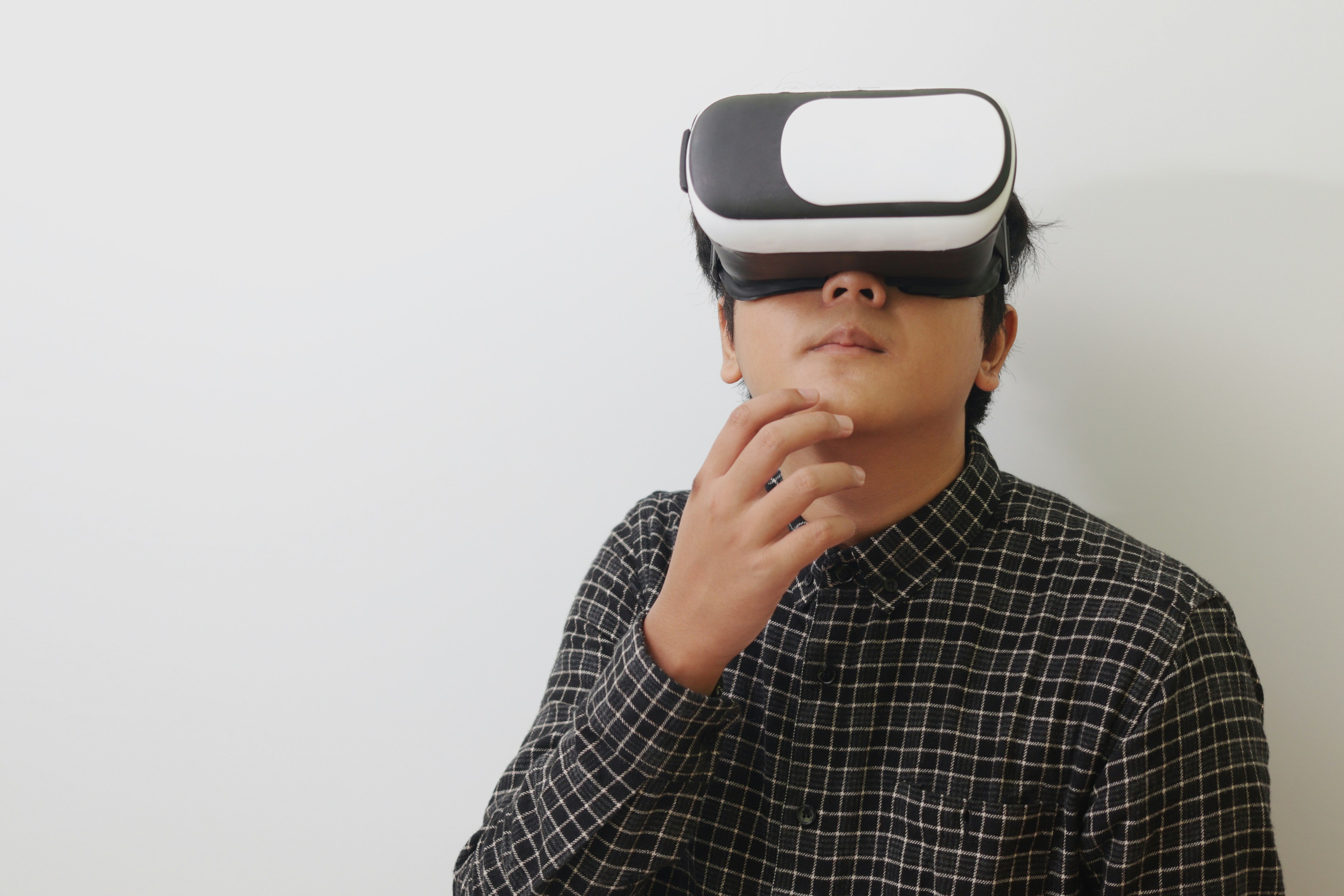Decoding Biometric Data Risks: Key Legal Insights for All
In today's digital age, we find ourselves caught in a fascinating web of technology and law—especially when it comes to biometric data collection. Whether you're a consumer worried about your personal information or a business navigating the legal landscape of data privacy, understanding biometric data legalities is crucial. This article unpacks the complex legal risks associated with biometric data collection, offering essential insights that can empower consumers and businesses alike. Let’s delve into what you need to know to stay informed and protected in a rapidly evolving world.
Understanding Biometric Data: What’s at Stake?

Before we dive into the legal intricacies, let's clarify what we mean by biometric data. This term refers to the unique physical characteristics that can be used for identification, such as fingerprints, facial recognition, voice patterns, and even retinal scans. In recent years, the collection and use of this data have increased exponentially, primarily fueled by advances in technology within sectors like security, healthcare, and consumer services.
While biometric data collection offers significant benefits, it also raises serious privacy and ethical concerns. For consumers, the risk of identity theft looms large, while businesses face the potential for liability issues stemming from misuse or unauthorized access to this sensitive information.
As we assess the myriad of legal risks tied to biometric data, it’s essential to consider both consumer and business perspectives—after all, the implications stretch far and wide. Understanding the nuances can help demystify what’s at stake for everyone involved.
The Legal Landscape Surrounding Biometric Data

The legal frameworks governing biometric data collection vary widely—both by region and industry. In the United States, for example, laws such as the Illinois Biometric Information Privacy Act (BIPA) set stringent requirements for organizations collecting biometric data. Under BIPA, companies must obtain consent from individuals prior to data collection, outlining how the data will be used and stored.
However, even outside of jurisdiction-specific legislation, general privacy and data protection laws apply. For instance, the California Consumer Privacy Act (CCPA) and the General Data Protection Regulation (GDPR) in Europe highlight strong consumer rights that govern data handling, including the use of biometric information. This means businesses must implement robust compliance measures, or risk facing heavy penalties and lawsuits.
From the perspective of consumers, awareness of these legal protections is key. Knowing your rights in terms of consent, data usage, and the ability to request information on what has been collected can empower you to take action if protections are violated.
Key Legal Risks for Businesses

For businesses, the risks associated with biometric data collection can be daunting. Being non-compliant with existing laws presents significant repercussions. Here are some essential points to consider:
1. Consent and Transparency

Consent isn’t just a checkbox on a form; it’s a fundamental legal requirement. Businesses collecting biometric data must be transparent about their data practices. Failure to obtain proper consent can lead to legal liabilities and damaged reputations.
2. Data Breaches

Cybersecurity is paramount. Data breaches involving biometric information can be catastrophic, affecting countless individuals. Organizations are legally and ethically required to have strong data protection strategies in place. Should a breach occur, they may be held liable for not protecting the sensitive data they collect.
3. Litigation for Violations

Lawsuits surrounding biometric data have surged in the past few years. For example, BIPA has attracted numerous lawsuits from individuals claiming their rights have been violated. Therefore, businesses must regularly audit their practices and stay updated on legal developments to avoid litigation.
The Consumer Perspective: What You Need to Know

Consumers navigating this landscape often feel overwhelmed by the legal jargon and technicalities. Here’s how you can protect yourself when engaging with biometric data services:
1. Know Your Rights

Understanding your rights regarding biometric data is crucial. The right to consent means you should never feel pressured to provide your biometric information—especially without a clear explanation of its use.
2. Research the Companies You Interact With

Before providing biometric information, research the business practices of any company requesting such sensitive data. Look for transparency regarding their consent process and review their privacy policies to see how they handle and protect data.
3. Monitor Your Data Rights

Stay informed about your rights to request information about what data has been collected, how it’s been used, and the actions you can take to rectify any situations of misuse.
Whether you're a business or consumer, knowledge is power when it comes to navigating the realm of biometric data.
Navigating The Future: Evolving Regulations and Ethical Considerations

As biometric technologies continue to develop, so too will the legal frameworks surrounding them. The future may bring even stricter regulations, especially as public awareness of data privacy grows. Consequently, businesses must stay proactive about compliance to mitigate risks.
Moreover, ethical considerations are ever-present. Companies must adopt responsible practices regarding the use of biometric data. For instance, are they leveraging this technology to enhance user experience, or are they merely collecting it for unrestricted use? The answer will significantly influence how businesses are viewed by consumers and regulators alike.
Additionally, as the lines between physical and digital realities blur, understanding the legal implications of biometric data extends beyond conventional boundaries. For instance, as explored in our article on the navigating legal boundaries in game design, imaginative applications in virtual environments pose unique challenges and opportunities, and the ramifications of biometric identification in these spaces can be particularly complex.
Industry-Specific Cases: Striking a Balance Between Innovation and Compliance

Different industries face varied challenges regarding biometric data. For example, healthcare providers leveraging biometric data for patient identification must comply with HIPAA regulations in the U.S. Similarly, financial institutions utilizing biometric authentication technology must ensure they’re aligned with the regulations set forth by the Federal Trade Commission.
Real-world case studies illustrate the necessity for organizations to strike a balance between innovation and compliance. For example, consider a healthcare provider that begins implementing a new facial recognition system for patient check-in. While this technology improves efficiency, non-compliance with HIPAA could lead to fines or lawsuits, urging companies to stay vigilant about adhering to regulations during innovation.
Businesses should also be aware of emerging legal interpretations and case law that can set significant precedents. It's wise to keep abreast of changes—not only to comply but to anticipate future challenges.
The Role of Consumers in Shaping Biometric Data Laws

Consumers have a vital role in influencing laws around biometric data collection. Increased exposure to technology has led to greater demand for transparent data practices. When consumers demand accountability from the companies they engage with, it propels businesses to adhere to stricter standards.
Joining advocacy groups or engaging in public discussions surrounding data privacy can lead to significant changes in policy. By emphasizing ethical data usage, the collective voice of consumers can influence legislative bodies to create more comprehensive laws that protect individual rights.
Final Thoughts: Stay Informed and Empowered

Navigating the legal nuances of biometric data collection can seem intimidating, but consumers and businesses alike can become equipped with knowledge. Awareness of your rights, understanding compliance obligations, and actively participating in discussions around data ethics are all steps toward making informed decisions.
Now more than ever, it’s essential to engage with the story generated by our digital footprints. By educating yourself about the legal risks of biometric data collection, you position yourself favorably—whether in terms of protecting your privacy as a consumer or safeguarding your business against potential liabilities.
As we move forward, cultivate a mindset that prioritizes ongoing education about the evolving legal landscape. The conversation surrounding biometric data is far from over—and being informed is your best defense.
Stay ahead of the curve, keep those conversations going, and remember: knowledge is power in this brave new world of digital data.



